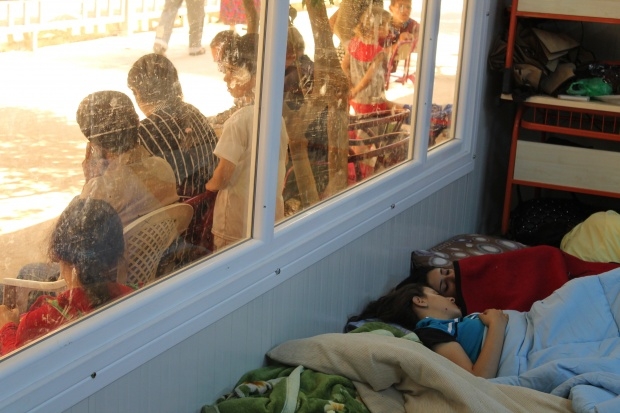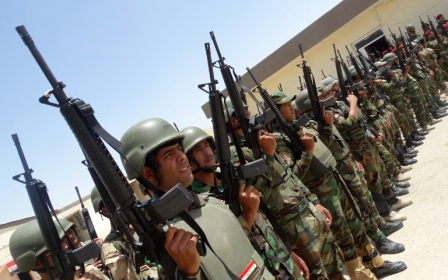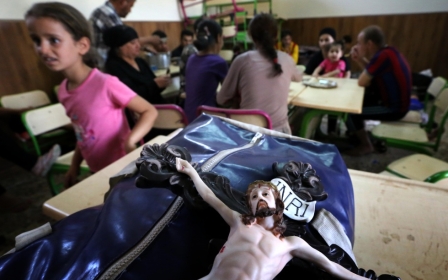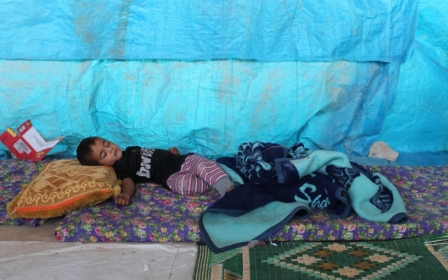UN announces emergency aid for 500,000 northern Iraqis

The UN refugee agency said Tuesday it was poised to mount a massive aid operation for 500,000 Iraqis driven from their homes by militant rebels.
"In response to the deteriorating situation in northern Iraq, UNHCR is this week launching one of its largest aid pushes aimed at helping close to half a million people who have been forced to leave their homes," spokesman Adrian Edwards told reporters.
The militants, who have declared a "caliphate" in a region straddling the Iraq-Syria border, have after two months of violence brought Iraq to the brink of breakup.
To date, the United Nations estimates that 1.2 million Iraqis have been displaced by fighting this year, Edwards said ahead of the aid push set to begin Wednesday.
"Barring last-minute delays, an air, road and sea operation will begin tomorrow (Wednesday), starting with a four-day airlift using Boeing 747s from Aqaba in Jordan to Arbil, followed by road convoys from Turkey and Jordan, and sea and land shipments from Dubai via Iran over the next 10 days," he said.
Refugees whom MEE has talked with in recent weeks have taken shelter in church yards and empty industrial buildings, many fleeing by foot from their towns.
“People are hurting here," said Majed Zora, 50, who left Qaraqosh with his extended family earlier this month when IS militants captured the town. His family was sleeping in a restaurant owned by a distant relative in Erbil.
"There’s no medicine, no nappies for the babies. Some people haven’t showered in seven days,” he said.
Among the initial supplies the UN will distribute are 3,000 tents, 200,000 plastic sheets, 18,500 kitchen sets and 16,500 jerry cans.
Edwards said that a key goal was to help those who lack shelter or housing.
"Conditions remain desperate for those without access to suitable shelter, people struggling to find food and water to feed their families, and those without access to primary medical care. Many are still coming to grips with the tragedy they've been through in recent weeks -- fleeing homes with nothing, and many trying to cope with the loss of loved ones," he said.
"The aid that's coming from outside is aimed at meeting the needs of the most vulnerable people -- primarily at this moment it's people without accommodation who really need the most urgent help. We have to start with the most vulnerable and then expand from there," Edwards said.
"This is a major humanitarian crisis and disaster and it continues to affect very large numbers of people. Very much more aid is going to be needed over the next weeks," he added.
New MEE newsletter: Jerusalem Dispatch
Sign up to get the latest insights and analysis on Israel-Palestine, alongside Turkey Unpacked and other MEE newsletters
Middle East Eye delivers independent and unrivalled coverage and analysis of the Middle East, North Africa and beyond. To learn more about republishing this content and the associated fees, please fill out this form. More about MEE can be found here.




